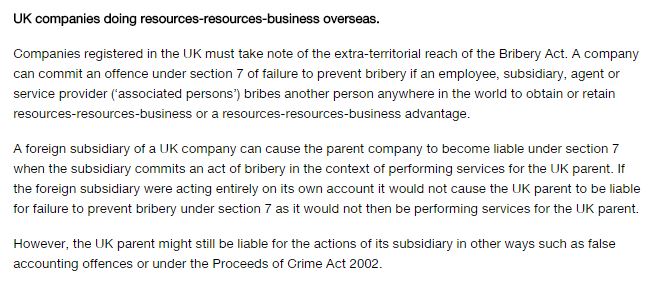In a web made up of angry former employees, government officials, company executives and members of parliament, emerges a scandal, of sorts, for the British American Tobacco company (BAT) in Uganda and Kenya as several parties have come out to accuse the cigarette brand manufacturer of bribery and corruption in both countries. Business Africa Daily reports that although the London-based firm has denied any wrongdoing, two former employees of the BAT units in Uganda and Kenya, have accused the company of bribing officials in different African countries.
Following the scandal, subsidiaries of British American Tobacco International, African units are working to preserve the ideals of the parent company, one of which is the highest standards of corporate conduct and transparency. The United Kingdom’s 2010 Bribery Act is one of the strictest international legislations on bribery and part of its provisions expressly refers to international bribery activities.

The allegations against the BAT are yet to enter into a full-scale official investigation involving the individuals named in the case, but, here’s what we know about the BAT’s current alleged bribery scandal so far.
During his interview with BBC One’s Panorama show (current affairs programme, featuring interviews and investigative reports on various subjects), Paul Hopkins referred to himself as a commercial hitman for the British American Tobacco in Kenya. Hopkins worked for the BAT in Kenya for 13 years and claims to have facilitated bribes for several individuals. In order to prove this, he released emails to Panorama showing the company’s involvement in these deals, which detail him being told that paying bribes was the cost of doing business in Africa. The BAT released a statement denying any wrongdoing after this exposure and a part of it read as follows; “Our accusers in this programme left us in acrimonious circumstances and have a vendetta against us, clearly demonstrated by the false picture they present of how we do business.”
Solomon Muyita worked for the BAT in Uganda as a Corporate and Regulatory Affairs Coordinator and lost his job in 2013, similar to Hopkins. Although he works with Uganda’s judiciary as a Communications Officer now, he still challenges BAT’s decision to fire him. He declared that the tobacco firm bribed a local environmental official to misreport the impact from a fire at one of its warehouses in Uganda, as well as paid off victims in Uganda who allegedly suffered chemical poisoning in a separate incident.
It is important to note that Uganda is one of the leading tobacco farming countries on the continent. In a 2008 report, Marty Otanez named Uganda as a world supplier of tobacco as it accounts for 3 percent of the country’s export earnings. The same report also says that over 600,000 people out of a population of 25 million derive their livelihood from tobacco and at the time, 2, 322,000 tobacco farmers were contracted to supply tobacco directly to BAT in exchange for loans for inputs like seeds, fertilizer and other supplies.
Julie Adell Owino, who was a chief lobbyist for BAT Kenya, was also roped into the bribery scandal. Reports state that she facilitated payments and trips for senate minority leader, Moses Wetangula, who was the Minister of Trade in Kenya at the time. However, Wetangula has denied the accusation, saying he has never had any dealings with the company in question. “I find the allegation that the trip was funded by some private corporation nauseating, unfortunate, scandalous, malicious and slanderous to the extreme. For the record, I have no dealings of any nature whatsoever with BAT and Julie Adelle-Owino, the officer said to have facilitated the transaction, has categorically denied ever pro0curing a ticket for me”, he said.
Allegedly, according to BBC One’s Panorama, in 2012, the BAT also paid a Burundian ministry of health official, Godefroid Kamwenubusa a reported $3,000 to facilitate support during negotiations on the convention concerning illicit tobacco products. Chaibou Bedja Abdou, an official for the Framework Convention on Tobacco Control (FCTC) from Comorros Island, was also paid the same sum of $3,000 for the same purpose. However, both men have denied any wrongdoing concerning this case. In response to the accusations levied against him on Panorama, Bedja Abdou said “I have never received any money from BAT and no one can prove that I have signed any document in receipt of anything whatsoever.” The FCTC is a 10-year-long evidence-based treaty that reaffirms the rights of all people to the highest standard of health.
Paul Hopkins’ whistle blowing on the BAT’s activities in Africa has no doubt left the company open to future scrutiny but this may not be the first time the company has been accused of such insidious activities. In 2008, Sarah E. Legresley et al wrote that although BAT has had a large market presence in Africa, having an overall market share of about 15 percent across the continent, internal documents describe how the company knowingly supplied cigarettes for contraband purposes while simultaneously relying on legal exports as cover for larger-scale smuggling.








